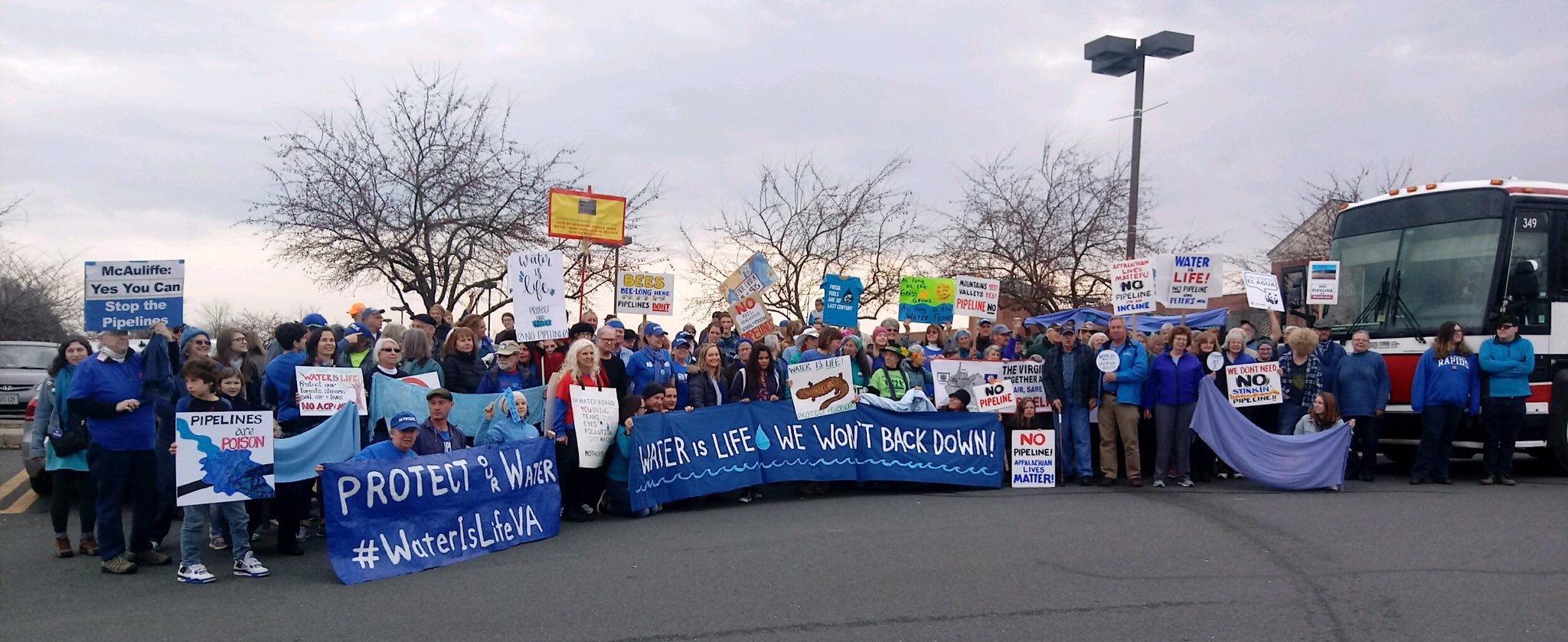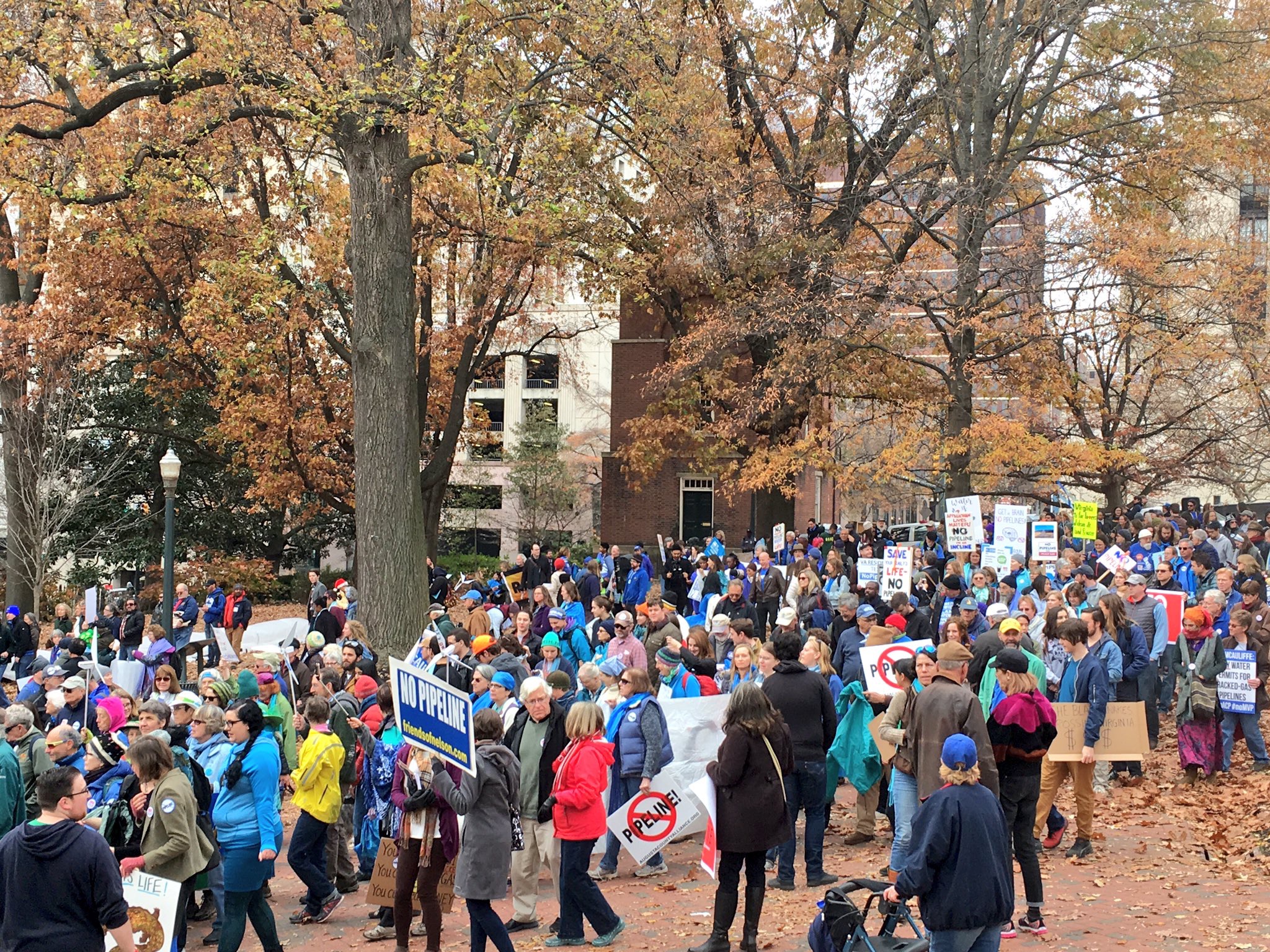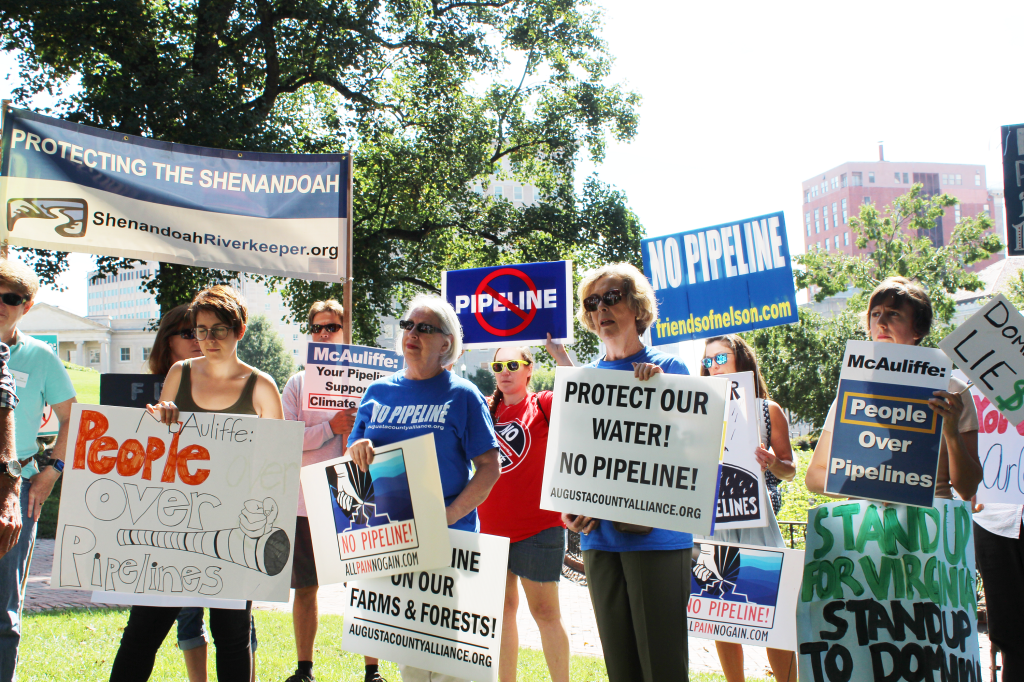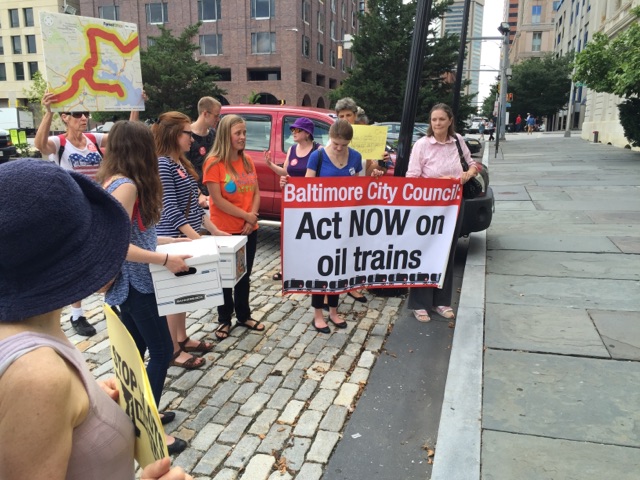Groups File Lawsuit Demanding a Serious Water Quality Analysis is Done
RICHMOND, VA — Today, a coalition of environmental groups filed a petition for review with the United States Court of Appeals for the Fourth Circuit to overturn Virginia’s unlawful approval of the fracked gas Mountain Valley Pipeline (MVP). Attorneys with Appalachian Mountain Advocates filed the litigation on behalf of the Sierra Club, Appalachian Voices, the Chesapeake Climate Action Network, and Wild Virginia.
Today’s action comes just a day after the Virginia State Water Control Board issued a certificate under the Clean Water Act that MVP needed to obtain to begin construction. The Board announced its decision on Thursday, at the conclusion of two days of contentious hearings. The Board takes up the same consideration for the Atlantic Coast Pipeline next week.
>> Today’s filing can be downloaded here.
The Board followed the Virginia Department of Environmental Quality’s (DEQ) recommendation to approve the project without requiring any assessment of how much pollution the pipeline would add to Virginia’s waters. The DEQ recognized that pipeline construction could cause significant harmful sedimentation in the steep, landslide-prone terrain crossed by the MVP, as have many other agencies and experts. Despite that, the Board concluded that erosion control plans–which the Board has not seen because they have yet to be developed–would protect water quality. Similar plans, however, have failed to prevent significant sediment pollution on pipeline construction projects in other states through much less challenging terrain.
Although construction of interstate gas infrastructure is regulated by the Federal Energy Regulatory Commission (FERC), individual states have the authority to protect their water from the impacts of fracked gas pipelines.
In response, Sierra Club Beyond Dirty Fuels Campaign Director Kelly Martin released the following statement:
“The Mountain Valley Pipeline will cause severe sediment pollution in streams, springs, and waterways across Virginia, and not a single foot of pipe should be laid before the Commonwealth conducts a comprehensive analysis of the MVP’s water quality impacts. People, businesses and communities throughout Virginia depend on access to clean water and the Commonwealth should be looking out for them, not corporate polluters.”
Peter Anderson, Virginia Program Manager for Appalachian Voices said:
“We are extremely disappointed the Board voted to approve the pipeline without the information required to support its decision. Throughout the entire process, the DEQ sought to limit public participation, the information it shared with the Board, and the scope of the Board’s authority. The inevitable damage to water resources across our mountains is unacceptable, so we are taking our fight to the courts. We will stand up for the people whose water, homes, and livelihoods are threatened by the Mountain Valley Pipeline.”
Mike Tidwell, Executive Director of the Chesapeake Climate Action Network, said:
“The Chesapeake Climate Action Network strongly condemns this decision, and the McAuliffe Administration’s support for the Mountain Valley Pipeline. Virginians rightfully expected that a project this massive, which would cross hundreds of streams and tear through steep, mountainous terrain, would be subject to rigorous environmental review. Instead, the McAuliffe Administration pushed the Board to approve the pipeline with a promise of future analysis but without providing critical information. This rushed decision, if allowed to stand, will harm farmers, consumers, drinking water, and the climate and constitutes a colossal misallocation of resources.”
David Sligh, Conservation Director of Wild Virginia said:
“The Virginia State Water Control Board had a clear duty, to look at all potential impacts to state waters from the Mountain Valley Pipeline and make sure our water quality standards are upheld. Instead, the Board went along with the DEQ’s approach of arbitrarily segmenting its review and shirking its legal duties. This approach was clearly constructed by DEQ to avoid the conclusion that would come from a scientifically valid assessment – that this project cannot be built as proposed in a way that protects our waters and our communities.”
###
Doug Jackson, 202.495.3045 or doug.jackson@sierraclub.org
Ben Luckett, 859.552.6979, bluckett@
Derek Teaney, 304.793.9007, dteaney@
Peter Anderson, 434-293-6373, peter@appvoices.
Mike Tidwell, 240-460-5838, mtidwell@









